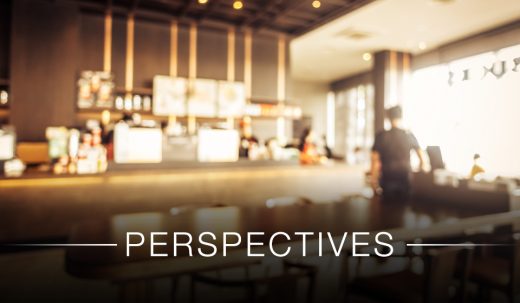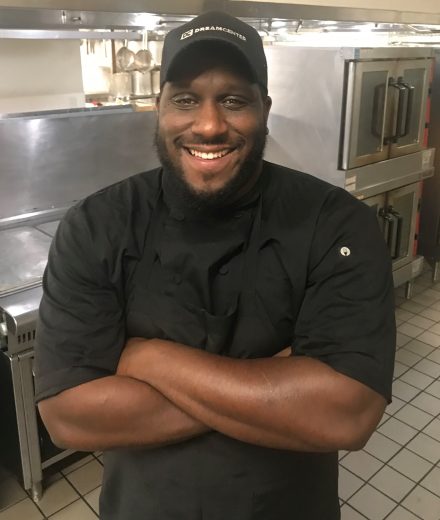
Perspectives is a short-form Q&A with culinary and hospitality professionals navigating the new landscape. Each week we’ll hear from different members of various communities about their experiences in the COVID era and how they are helping their business, customers and community move forward.
Chef Evan Bass doesn’t hide from his past. He came to the Dream Center in Los Angeles not to be a chef, but in need of help for his opioid addiction. He spent a year in their recovery program. It was so life-changing that Bass, a graduate of the Culinary Institute of America, decided to stay on and work there.
The Dream Center provides a myriad of resources, including education, feeding the homeless and helping with addiction. Bass is nearly three years into his time with the Dream Center, where he also runs a men’s group and works as a pastor for the organization’s church.
Chef Works: You have a background in restaurant groups and fine dining. Why stay on at the Dream Center?
Evan Bass: I believe it’s bigger than me. It would be selfish of me to not give back to the place that gave me my life back. To be truthful and transparent, I should be dead. Of the six guys I used to run with, three of them are dead. Do that math and it could have been me. It’s bigger than just cooking. It’s changing lives.
Yes, I could leave and that would change my life. But it might not be making the same impact on someone else’s life.

CW: You can cook and — speak — with experience. How does that resonate with the people you work with?
EB: I don’t think it’s a surprise that sometimes in kitchens, you can pick up bad habits. I found my way into those. It’s a tough job. I went through the recovery program for a whole year. I never thought I’d be able to work in a kitchen again. I’m 29 and have been in kitchens since I was 15. But I humbled myself.
People can’t believe I had an addiction. I don’t recognize the person I used to be. I’m straightforward. I’m truthful and transparent. There are a lot of people in this world who will lie and try to manipulate you. If you’ve committed yourself to a one-year program, you deserve straight talk.
CW: How is food a comfort to the people you serve?
EB: Take people who are in the recovery program, for example. They are here for a year. We do a lot of cafeteria-style food, but sometimes I can make something from scratch, like a molé, that will remind them of home or their family. We call it comfort food for a reason.
For someone who is living on the streets, they might have to walk miles to come here for a meal. It means something to them. It can give them hope for the rest of the day. They might be sleeping under a bridge, but they are going to have warm food in their belly. I see the smiles on the faces of the children and their parents. Food can change your entire day. And if we can do that one day at a time, we’re helping.
CW: How about in the COVID era?
EB: It’s funny that you mention that. I was in an Uber a few days ago and the driver thanked me. I didn’t recognize him, but early on, when everything started, we were giving away fresh food and produce as well. We had given him a pork tenderloin so he could cook for his family. He remembered my face.
You never truly know what kind of an impact you’re going to make on someone’s life. There’s an energy you get from food – literally and figuratively. With a full belly, you feel like you can accomplish more and you can handle what life throws at you.
If you work in hospitality and would like to be featured in Perspectives, please email kgemmell@chefworks.com.
ON THE BLOG: Some trending stories from the last couple of months
- Perspectives: Nate Johnson (7/3/20)
- Perspectives: Jim Berman (6/26/20)
- Perspectives: Robert Benson (6/19/20)
- Perspectives: The Chocolaterie (6/12/20)
- Perspectives: Chef Rocky Dunnam (6/5/20)
- Chef Works proudly launches SKILD SERIES™ face coverings (PRE-ORDER NOW!)
- Super Bowl chef Dayanny De La Cruz is leading her own comeback story
- Chefs Allison Fasano and John Brill are masked heroes in Gotham.
- Food critic, writer and TV personality Troy Johnson is hopeful for a “massive flood” of people at restaurants.


